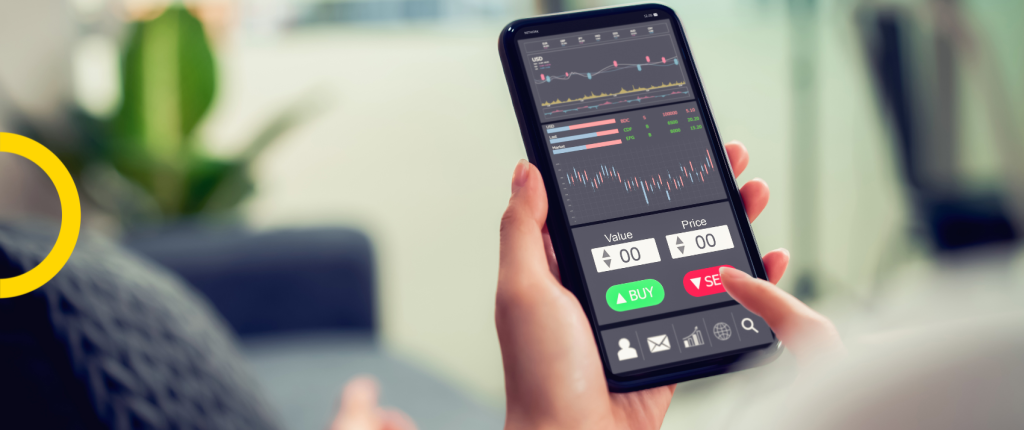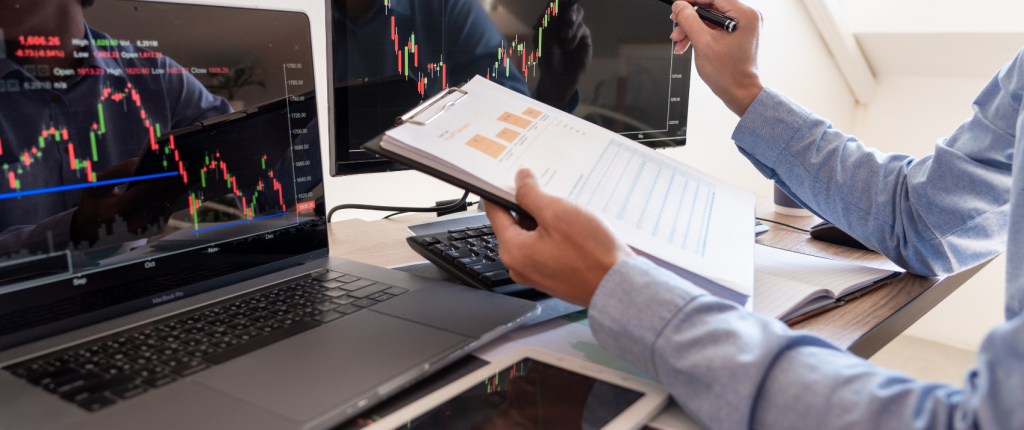Forex trading, or foreign exchange trading, involves buying and selling currencies in the global market. As the largest financial market in the world, forex trading offers significant opportunities for profit, but it also comes with its own set of risks. Forex trading has gained popularity as a way to potentially generate income, but it’s essential to understand the basics, which will be discussed in this article, before diving in. In next week’s article, we will unpack more advanced concepts to consider as a forex trader.
Table of Contents
Step 1: Understanding the forex market

The forex market operates 24 hours a day, five days a week, allowing traders to engage in transactions across different time zones. Currency pairs, such as USD/ZAR (US Dollar/South African Rand), are traded based on their exchange rates, which fluctuate due to economic factors, geopolitical events, and market sentiment. Unlike stock markets, the forex market has no central exchange; it operates through a global network of banks, brokers, and financial institutions, making it highly liquid and accessible.
Step 2: Choosing a reliable broker

Selecting a reputable forex broker is crucial for a successful trading experience. Look for brokers that are regulated by recognised authorities, such as the Financial Sector Conduct Authority (FSCA) in South Africa. Reputable brokers offer secure trading platforms, competitive spreads, and reliable customer support. Additionally, consider the range of services they provide, such as educational resources, trading tools, and account options. Transparency in fee structures and the availability of a demo account are also important factors to consider when choosing a broker.
Step 3: Opening a trading account

Once you have chosen a broker, you will need to open a trading account. This typically involves providing personal information, verifying your identity, and funding your account. Many brokers offer different types of accounts, such as standard, mini, and micro accounts, to cater to various trading needs and budgets. Ensure you understand the minimum deposit requirements and any associated fees. Some brokers also offer Islamic accounts that comply with Sharia law, which can be an important consideration for Muslim traders.
Step 4: Learning the basics of forex trading

Before you start trading, it’s essential to educate yourself about the fundamentals of forex trading. Understand key concepts such as leverage, margin, pips, and lot sizes. Leverage allows you to control larger positions with a smaller amount of capital, but it also increases the risk of significant losses. Familiarise yourself with different types of orders, such as market orders, limit orders, and stop-loss orders, which can help you manage your trades more effectively.
Step 5: Developing a trading strategy

Successful forex trading requires a well-thought-out strategy. Decide on your trading goals, risk tolerance, and preferred trading style (e.g., day trading, swing trading, or scalping). Use technical analysis, which involves studying charts and indicators, and fundamental analysis, which examines economic data and news events, to inform your trades. Combine these analyses to create a balanced approach that considers both market trends and economic factors.
Step 6: Practicing with a demo account

Most brokers offer demo accounts that allow you to practice trading with virtual money. This is an excellent way to familiarise yourself with the trading platform and test your strategies without risking real capital. Use the demo account to gain confidence and refine your trading approach. Treat your demo trading as seriously as you would real trading to develop disciplined habits and improve your decision-making process.
Step 7: Continuous education and market awareness
The forex market is dynamic and ever-changing, making continuous education crucial. Stay updated with the latest market news, economic indicators, and geopolitical events that can impact currency movements. Participate in webinars, read articles, and join forex trading communities to enhance your knowledge. Understanding the broader market context will help you make more informed trading decisions and adapt to market changes effectively.

Forex trading in South Africa can be a rewarding venture if approached with the right knowledge and preparation. By understanding the forex market, choosing a reliable broker, opening a trading account, learning the basics, developing a strategy, practising with a demo account, and continuously educating yourself, you can set yourself up for success in the dynamic world of currency trading. With diligence and discipline, you can navigate the complexities of the forex market and work towards achieving your financial goals.







1 Comment
Hi regenesys.net owner, Your posts are always well-balanced and objective.